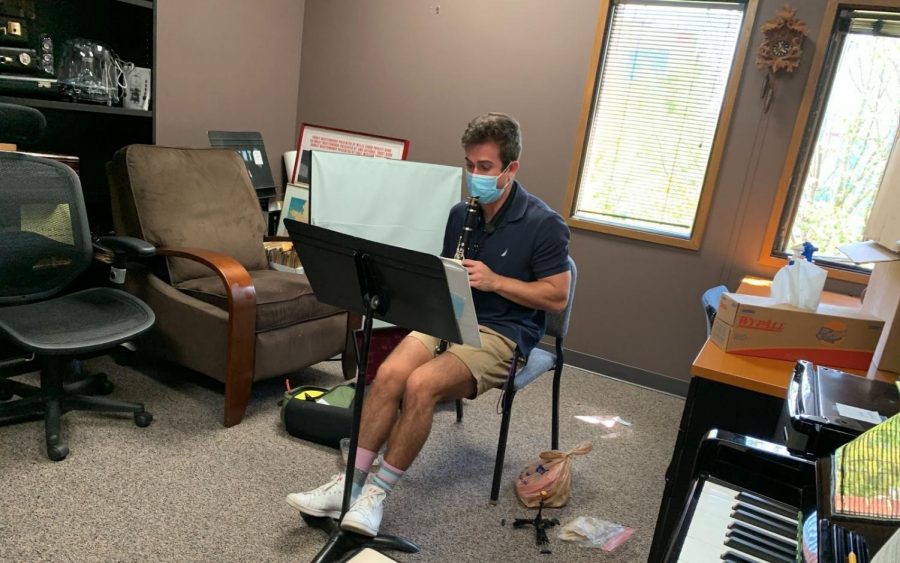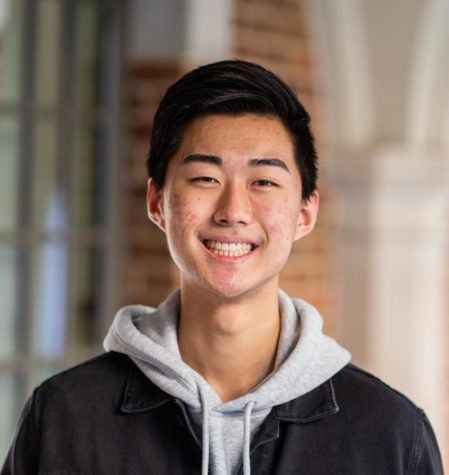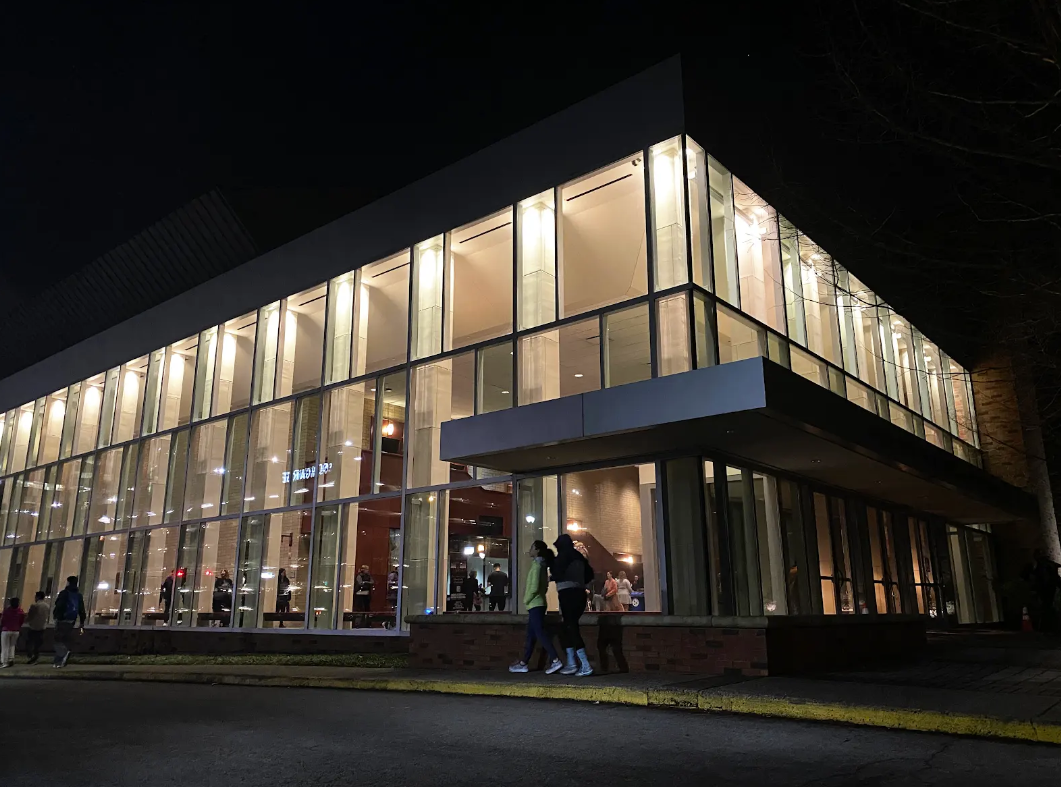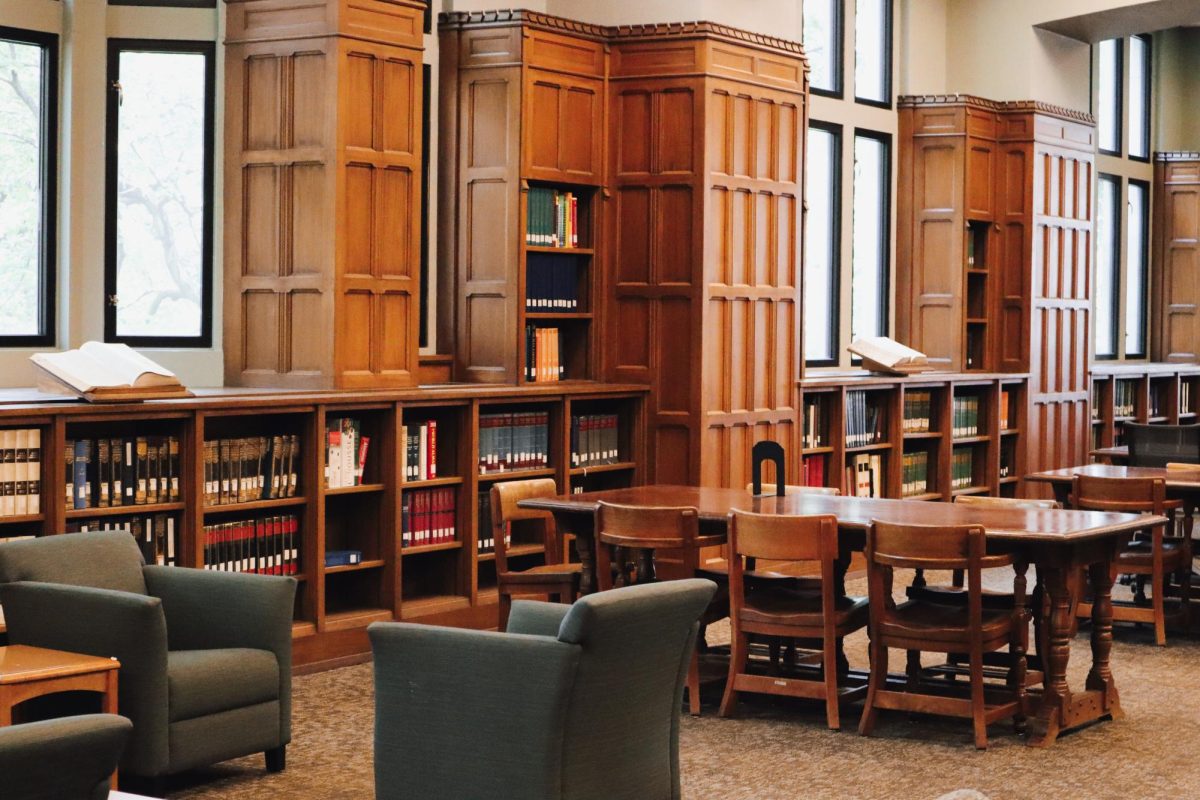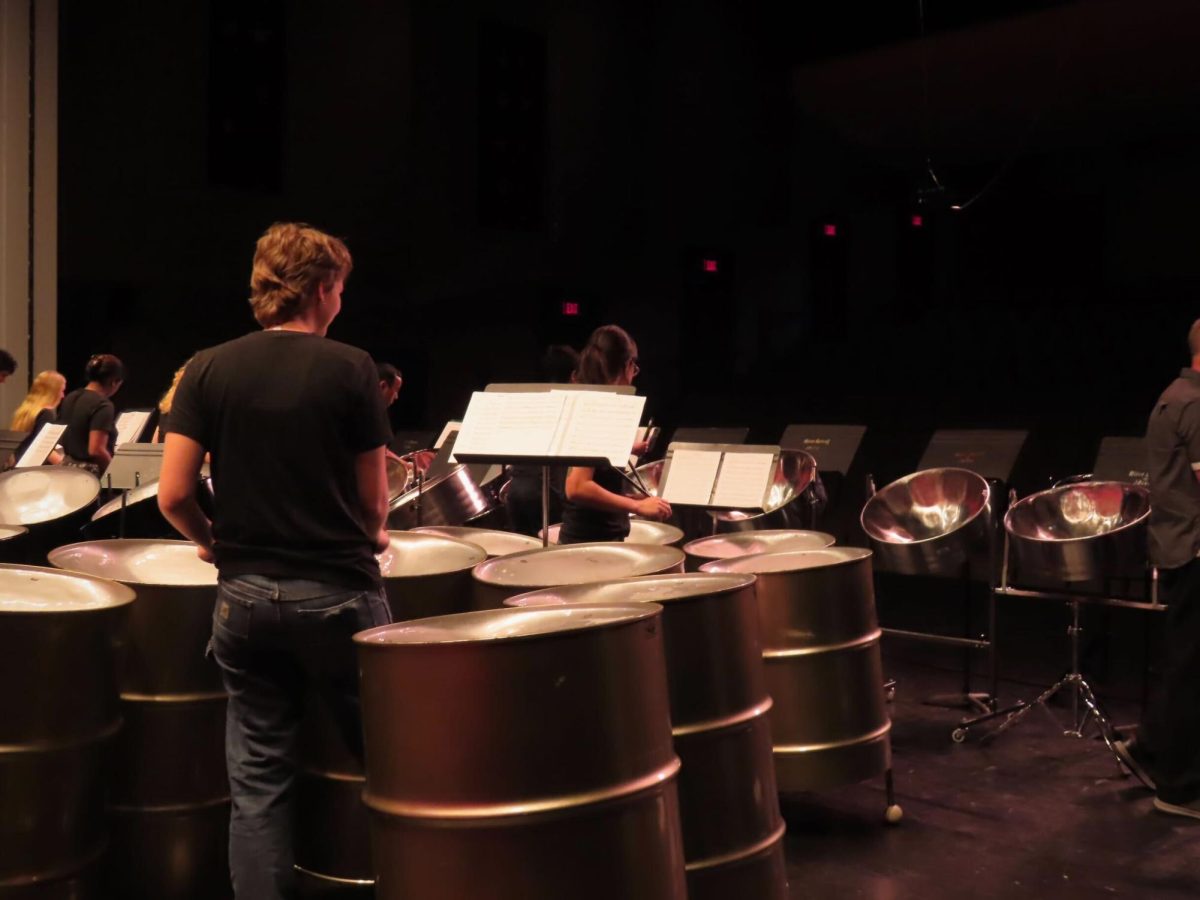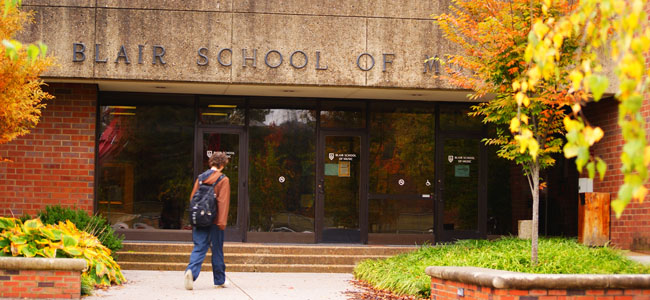On Aug. 12, Senior Associate Dean for Academic Affairs Melissa K. Rose emailed students in the Blair School of Music about additional regulations on rehearsal and performance opportunities for woodwind, brass and voice musicians.
To ensure the safety of students and staff, the Office of Student Organizations and Governance implemented similar regulations after new findings were published to mitigate the spread of COVID-19.
At Blair
Woodwind and brass musicians can now only play for 30 minutes during in-person private instruction, limiting engagement for those enrolled in 45- and 60-minute lessons. According to the new protocols, students and instructors must distance themselves by ten feet—as opposed to the six-foot requirement for non-wind musicians—and fix their instruments with bell covers to prevent aerosols from escaping into coaching spaces.
According to junior Rachael Bell, who is pursuing a Bachelor of Music (B.M.) in Vocal Performance, most voice professors adapted to solely-online instruction due to the fact that singing can transmit aerosols to farther distances than non-vocal instruments.
The new regulations also stipulate that for in-person private instruction, students must wear face masks, be separated from their professors by a plexiglass barrier and follow a number of other Blair-wide safety protocols. Students can opt for completely-online private instruction at any time.
Per senior Zachary Gassenheimer, due to in-person limitations, many professors have hybridized their teaching, providing their students with additional opportunities to play through virtual means. Gassenheimer is pursuing a B.M. in Clarinet Performance and commented on recent changes in his learning.
“To make up for the lost time [of in-person instruction], we’re getting an hour of instruction on Zoom,” Gassenheimer said. “But, the sound quality is different and there’s a lot of fine-tuning that can’t be done.”
Bell reflected on similar challenges pertaining to perfection and musicianship.
“There’s a joy in live performance that if you mess up, you just have to keep going because you don’t get that chance back,” Bell said.
During Blair performance classes, audiences must maintain social distance. Depending on the type of instruction, rooms must be vacated for varying lengths of time to allow aerosols to clear from them. Regarding practice, students must reserve specific time frames to use practice rooms and follow sanitation policies posted in each space, per Rose’s email.
Student Orgs
Outside of Blair, performing arts student organizations have also needed to change their plans for the school year. According to the Office of Student Organization and Governance guidelines, singers and musicians playing “instruments that require the use of air”—woodwind and brass—will not be allowed to participate in performances, requiring many performing arts groups to adapt their programming for the school year.
The Vanderbilt Chorale, a choir group, is currently working on a multimedia production of Gian Carlo Menotti’s “The Unicorn, the Gorgon, and the Manticore.” The project will feature recorded voices of the choir for people to watch at their own leisure, according to Bell, a member of the group.
Bell added that due to safety concerns, choir and opera organizations have limited the number of students that may participate in rehearsals, but those excluded may use Zoom to tune in and play along with the group on mute.
The Vanderbilt Commodore Orchestra (VCO) is a community ensemble that is only hosting non-wind chamber programs this fall. Despite the exclusion of wind musicians, VCO President Joe Xie is hopeful that students who can participate in VCO’s chamber program will forge new relationships to improve the orchestra that each of its members are a fundamental part of.
“It’s really unfortunate for half of our orchestra to not be able to play,” Xie said. “At the same time, developing people’s skills through the chamber program is also an opportunity.”
Spirit of Gold Marching Band President Seth Drey and other members of the band are also adapting to the new protocols. Drey is still waiting on the university’s response regarding what type of activities it can host. The Southeastern Conference (SEC) has already prohibited marching bands from performing at sports games. In response to the announcement, Drey spoke of the importance of safety.
“For the seniors, I feel like we all have some mixed feelings about [these times], and even though it’s no one’s fault, it definitely feels very inconclusive that this is our last year,” Drey said. “Whatever ends up happening, at the end of the day, the staff and student leadership’s goal is to keep students safe, so [even if] there might be doubts about what the season’s going to look like and what marching band is going to mean for people, safety comes first.”
Speaking on the current state of the Blair community, Gassenheimer offered a similar perspective.
“It’s strange to see the practice rooms so empty this year,” Gassenheimer said. “A lot of people view Blair as their safe space—their home—and as an underclassman, I spent a lot of time there hanging out and studying. That’s just something you can’t do anymore.”

